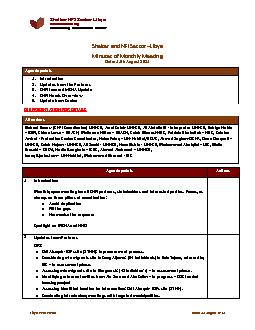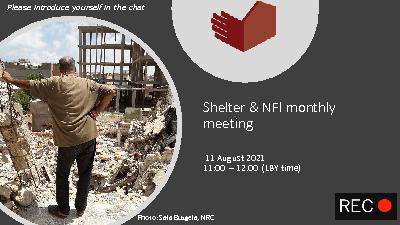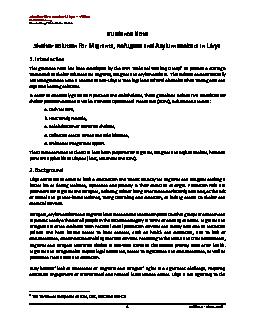Documentos Destacados
-
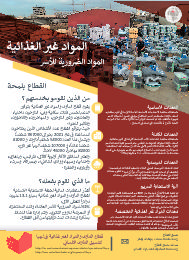
Information Sheet - NFI Arabic
[ 1.20M ] pdfAt a glance, info sheet demonstrating how sector partners contribute to the provision of essential household items.
-
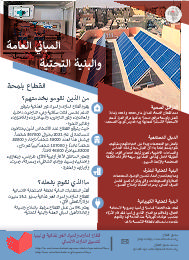
At a glance, info sheet demonstrating how sector partners contribute to the provision of rehabilitated infrastructure and public buildings.
-
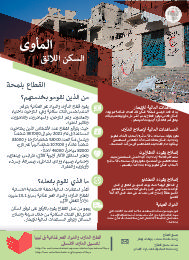
Information Sheet - Shelter - Arabic
[ 1.04M ] pdfAt a glance, info sheet demonstrating how sector partners contribute to the provision of adequate housing.
-
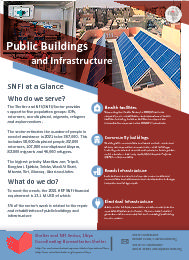
Information Sheets - Infrastructure
[ 0.97M ] pdfAt a glance, info sheet demonstrating how sector partners contribute to the provision of rehabiliated infrastructure and public buildings.
-

Information Sheets - Shelter
[ 1.04M ] pdfAt a glance, info sheet demonstrating how sector partners contribute to the provision of adequate housing.
-
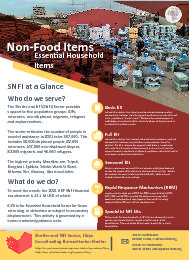
Sector Information Sheet - NFI
[ 1.18M ] pdfAt a glance, info sheet demonstrating how sector partners contribute to the provision of essential household items.
-
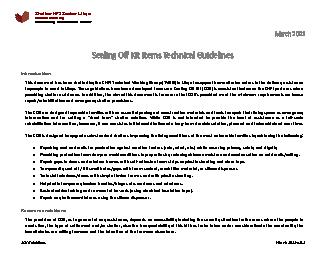
Sealing Off Kit (SOK) Guidance Note v1
[ 0.48M ] pdfThis document has been drafted by the SNFI Technical Working Group (TWiG) in Libya to support humanitarian actors in the delivery assistance to people in need in Libya. These guidelines have been developed to ensure Sealing Off Kit (SOK) is consistent between the SNFI partners when providing shelter assistance. In addition, the aim of this document is to ensure that SOK's provided meet the...
-
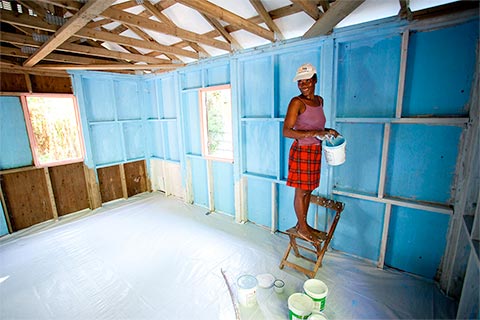
This is the Libya Sector's recommended guide for Rental Market Interventions; to be read in conjunction with the SNFI Sector and C&M Working Group's Guidance Note on rental market Interventions
-

NFI Technical Guidelines V2
[ 0.34M ] pdfThis document (version 2) developed by the Libya SNFI Technical Working Grorup, provides technical guidance to humanitarian actors engaged in the delivery of Non-Food items (NFI) assistance to vulnerable populations in Libya. The aim of the document is to ensure that NFI’s provided meet the minimum standards and emnable harmonisation between partners.
-
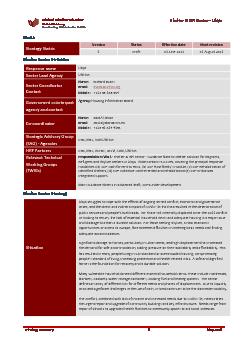
What does the Sector in Libya do, who does it serve, what are the key messages and why are we needed?
-

Housing is a basic human need and is central to social, emotional and economic well-being. Housing is closely tied to the way migrants and host populations live, organize their lives and their sense of security. As of September 2020, over 584,000 migrants were in Libya residing in a variety of housing arrangements including rented apartments, migrant guest houses and accommodation provided by...
![An icon representing]() Resumen
Resumen
THE SNFI SECTOR
The context and needs
Libya struggles to cope with the effects of ongoing armed conflict, economic and governance crises, and the direct and indirect impact of COVID-19 that has resulted in the deterioration of public services and people’s livelihoods. For those still internally displaced since the 2011 conflict or looking to return, the lack of essential household items and adequate housing is a major issue and blockage to attain a durable solution. For those seeking asylum, a new economic opportunities or access to Europe, face extreme difficulties in meeting basic needs and finding adequate accommodation.
Significant damage to homes, particularly in urban areas, and high displacement has increased the demand for safe accommodation, adding pressure on their availability and affordability. This has resulted in many people living in sub-standard or overcrowded housing, compromising people’s standard of living, increasing protection and health-related risks. A safe and dignified home is the foundation for recovery and a durable solution.
Many vulnerable households need different essential household items. These include mattresses, blankets, cooksets, water storage containers, cooking fuel and heating systems. The sector defines an array of different kits for different needs and phases of displacement. Due to liquidity crisis and significant challenges in the use of cash, in-kind continues to be the dominate modality.
The conflict, combined with lack of income and increased needs due to COVID-19, necessitates the urgent repair and upgrade of community buildings and key infrastructure. Needs range from repair of schools to upgraded health facilities to community spaces to aid social cohesion.
Who do we serve?
There are two principal target groups of the sector:
(1) IDPs displaced due to conflict, host population and returnees and
(2) refugees, asylum seekers and migrants.
Both target groups fall under the responsibility of the Shelter and NFI Sector led by UNHCR and co-coordinated by NRC. The Sector has 6 partners under the 2021 HRP.
SNFI sector estimates the number of people in need of assistance in 2021 to be 367,000. This includes 58,000 displaced people, 82,000 returnees, 107,000 non-displaced Libyans, 82,000 migrants and 46,000 refugees.
The highest priority Mantikas are; Tripoli, Benghazi, Ejdabia, Sebha, Wadi Al Shati, Misrata, Sirt, Murzuq, Ubari and Jufra.
What do we do?
To meet the needs, the 2021 HRP SNFI financial requitement is $13.1 M of which:
- 61% of its 2021 HRP portfolio is Essential Household Items for those returning, in detention or subject to secondary displacement. This activity is governed by a sector endorsed guidance note.
- 34% of the sector’s work is focused on providing adequate housing for all population groups through rehabilitation and repair of accommodation and cash for rent.
- 5% of the sector’s work is related to the repair and rehabilitation of public buildings and infrastructure.
Sector Objectives
The SNFI is directly addressing the second Objective of the 2021 HRP: Specific Objective 2: Facilitate safe, equitable and dignified access to critical services and livelihoods to enhance people’s resilience and ensure they meet their basic needs.
The Sector has two objectives that address the Specific Objective 2 from the HRP:
Sectoral Objective 2.1: Provide humanitarian life-saving and life-sustaining shelter and NFI support
Sectoral Objective 2.2: Contribute towards increased resilience and social cohesion of communities and households by improving housing and related community / public infrastructure
Shelter & NFI Sector 4W Dashboard
